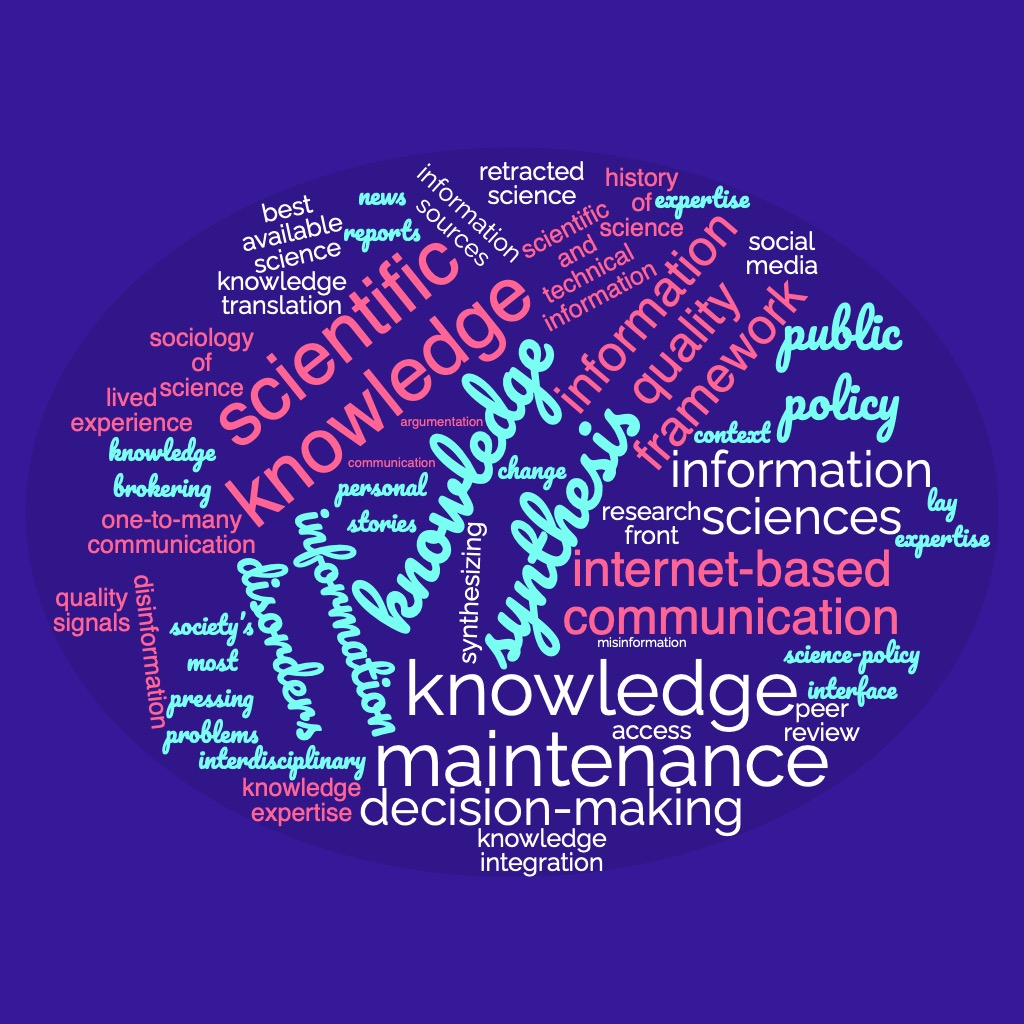Jodi Schneider
AN INFORMATION QUALITY FRAMEWORK TO MAINTAIN AND SYNTHESIZE KNOWLEDGE FOR DECISION-MAKING AND PUBLIC POLICY
 At the intersection of the fields of communication, information science, and argumentation stands the problem of the maintenance and synthesis of scientific knowledge: How is the ever-changing research front of scientific and technical information synthesized to address society’s most pressing problems? A key issue is that practical understanding of the best available science must integrate knowledge of varied types: citizens’ lived experience; journalists’ and intermediaries’ translation and knowledge brokering; and researchers’ field-specific, methodologically grounded scientific knowledge. The interdisciplinary study of knowledge, expertise, and science gained traction about 15 years ago with the publication of pioneering books from historians of science (Robert Proctor and Londa Schiebinger) and sociologists of science (Harry Collins and Robert Evans). Since then, Internet-based communication has become commonplace in the US and many other countries, increasing one-to-many communication via social media and enabling access while potentially de-contextualizing information sources. The study of information disorders—such as misinformation, disinformation, and continued circulation and amplification of retracted science—must be integrated to develop a modern understanding of the maintenance and synthesis of scientific knowledge.
At the intersection of the fields of communication, information science, and argumentation stands the problem of the maintenance and synthesis of scientific knowledge: How is the ever-changing research front of scientific and technical information synthesized to address society’s most pressing problems? A key issue is that practical understanding of the best available science must integrate knowledge of varied types: citizens’ lived experience; journalists’ and intermediaries’ translation and knowledge brokering; and researchers’ field-specific, methodologically grounded scientific knowledge. The interdisciplinary study of knowledge, expertise, and science gained traction about 15 years ago with the publication of pioneering books from historians of science (Robert Proctor and Londa Schiebinger) and sociologists of science (Harry Collins and Robert Evans). Since then, Internet-based communication has become commonplace in the US and many other countries, increasing one-to-many communication via social media and enabling access while potentially de-contextualizing information sources. The study of information disorders—such as misinformation, disinformation, and continued circulation and amplification of retracted science—must be integrated to develop a modern understanding of the maintenance and synthesis of scientific knowledge.
With this project, Professor Schneider will produce a journal article synthesizing work about information disorders, the science policy interface, and expertise (including lay expertise), highlighting changes due to the rise in Internet-based communication. This project will result in an information quality framework describing the different quality signals that must be considered across different types of contributions such as personal stories, news reports, and peer-reviewed science publications, in order to maintain and synthesize knowledge for decision-making and public policy.
